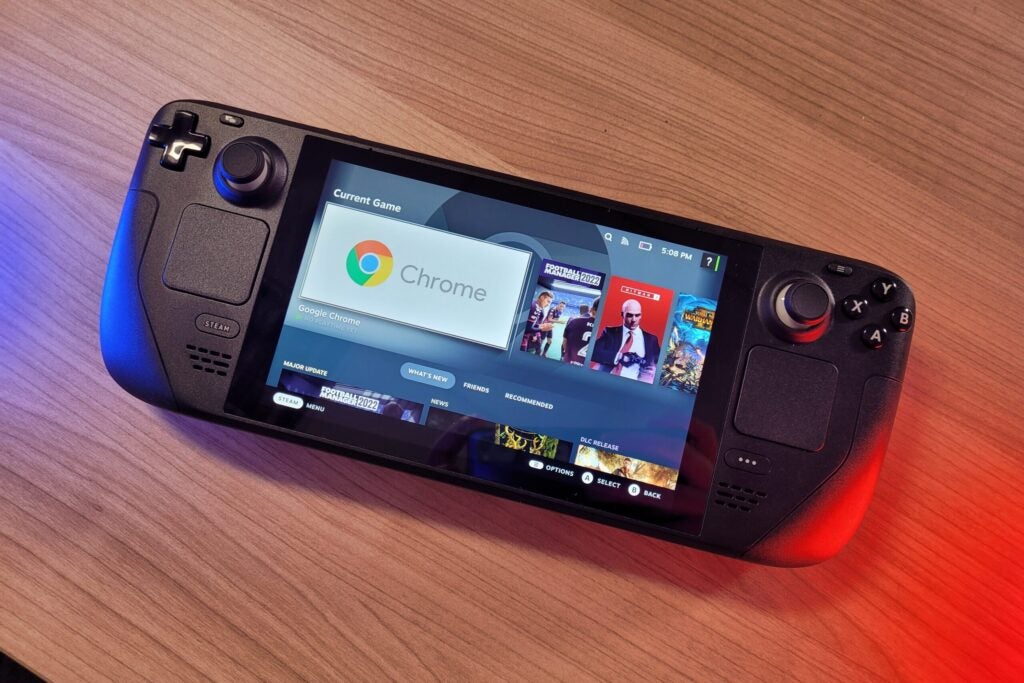OPINION: Valve is the undisputed king of PC gaming, with Steam proving to be the most popular PC digital storefront in the world. However, Valve would be naive to stand still with the ever-growing threat of Microsoft’s Game Pass.
Game Pass is a subscription service offered by Microsoft, with a monthly fee granting access to a large selection of games. It’s best to think of it like the gaming version of Netflix, proving to be a cost-effective option for those who like to play a lot of games each month.
Not only is Game Pass available on Xbox consoles, but there’s also a PC version of the service. This currently features popular PC games such as Diablo IV, Cities: Skylines II, Age of Empires IV and Football Manager 2023, as well as major Xbox exclusives such as Halo Infinite, Starfield and Forza Horizon 5.
Game Pass is surging in popularity, with Microsoft announcing that the platform amassed 34 million subscribers as of February 2024. Assuming that Game Pass’ growing influence will be restricted to consoles would be a mistake, and there’s no doubt in my mind that it could eventually start to gnaw away at Steam’s market share. After all, why would you spend £60/$70 on a new PC game when you could access it through PC Game Pass for just £7.99/$9.99 per month?


The obvious solution would be for Valve to launch its own subscription service. Valve already has the infrastructure and contacts in order to launch its own take on Game Pass. Of course, it would need to come to financial arrangements with many game publishers in order to include those games in its subscription service, but I don’t see why that would be an issue. It would also be able to throw in some of its own games such as the Half-Life and Portal series.
Unfortunately, Valve’s president Gabe Newel dismissed the idea of a subscription service back in 2022 during an interview with PC Gamer.
“I don’t think it’s something that we think we need to do ourselves, building a subscription service at this time,” Newell said. “But for their customers it’s clearly a popular option, and we’d be more than happy to work with them to get that on Steam.”
So does that mean the idea of a Steam Pass is dead and buried? I’m not convinced. I think the landscape has changed significantly since 2022, which may cause Valve to rethink its strategy.
Firstly, Game Pass had just 25 million subscribers in 2022, but that figure has since grown by 36%. These impressive numbers may well convince Valve that it’s an option worth exploring, but also compounds concerns that Microsoft is becoming a major rival in the PC space.
Secondly, it could give Valve a reason to push into cloud gaming. It’s becoming increasingly clear that gaming is gradually moving over to the cloud, with the likes of Game Pass and Nvidia’s GeForce Now allowing you to play games without the need for expensive hardware. It would be foolish for Valve to ignore this emerging trend, and a subscription service would be the perfect platform for Steam to offer that functionality.


And thirdly, I think a Steam Pass subscription could help to boost sales of the Steam Deck. Valve’s handheld gaming PC has been a triumph, but its success has also seen a litany of third-party manufacturers such as Asus, Lenovo, MSI and Ayano launch their own takes on the device. Suddenly, the Steam Deck has a lot of competition.
The Steam Deck is my personal favourite of the bunch due to its affordability, but it does annoy me that it’s slightly more difficult to load up Game Pass on the portable compared to the Windows devices. I don’t see this changing anytime soon though, as the main reason the Steam Deck is so much cheaper than its rivals is because Valve can make money through game sales, so it probably isn’t keen on the idea of making Microsoft’s Game Pass easy to access.
If Valve launched its own Steam Pass and made it available on the Steam Deck, then it would not only quieten calls for a native Game Pass app, but also encourage players to keep within the Steam ecosystem. Suddenly the Steam Deck would become an even more tempting prospect.
The more I think about it, the more a Steam Pass subscription makes a lot of sense. Despite Valve previously dismissing the idea of creating a Game Pass rival, I personally believe it’s only a matter of time until the company makes a U-turn. Refuses to adapt to an evolving market, and Valve could eventually lose its status as the king of PC gaming.
Ctrl+Alt+Del is our weekly computing-focused opinion column where we delve deeper into the world of PCs, laptops, handhelds, peripherals and more. Get it straight into your email inbox every Saturday by signing up to the newsletter.

